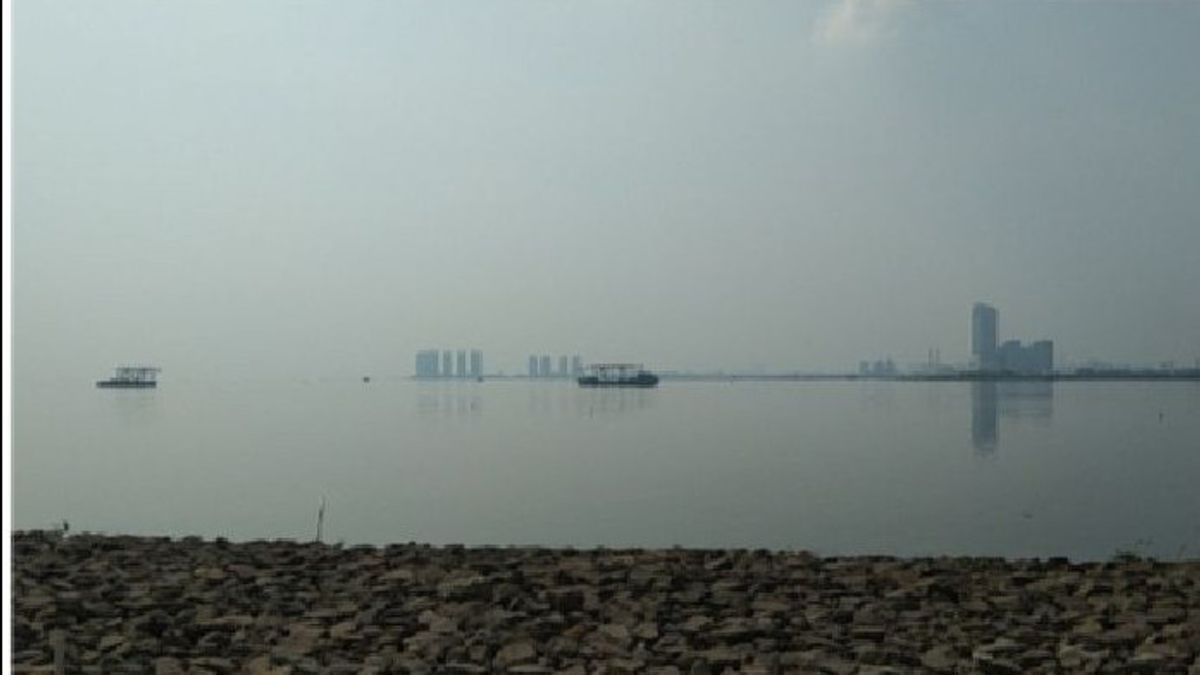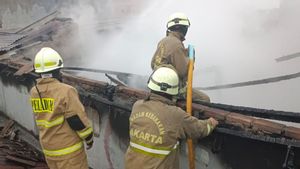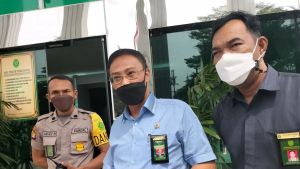JAKARTA - The Indonesian Institute of Sciences (LIPI), which is currently a member of the National Research and Technology Agency (BRIN), explained what they had discovered about the paracetamol content in seawater in Jakarta Bay.
Oceanographic researcher from the National Research and Technology Agency (BRIN) Wulan Koagouw said that his party had not been able to determine what effect it would have on humans for the findings of paracetamol content in seawater in Jakarta Bay.
"If it affects humans, I can't say if I don't have data. As for the level of concern for humans, I don't know," said Wulan in a virtual discussion, Monday, October 4.
Wulan said that BRIN researchers still had to do further research on the dangers of Paracetamol to the environment.
What is clear is that if this condition is left for a long time, it will have a bad impact on the marine biota ecosystem around Jakarta.
"If the concentration is always high in the long term, this is a concern for us because it has bad potential for marine animals," said Wulan.
So far, the results of research in the laboratory have found that exposure to paracetamol at a concentration of 40 ng/L has caused atresia in female mussels, and a swelling reaction.
"Further research still needs to be done regarding the potential dangers of paracetamol or other pharmaceutical products on marine biota," said Wulan.
For information, the research team from the National Research and Innovation Agency (BRIN) and the University of Brighton UK released the results of a preliminary study on sea water quality at several sites dominated by waste disposal.
The results of the study were published in the journal Marine Pollution Bulletin entitled High concentrations of paracetamol in effluent dominated waters of Jakarta Bay, Indonesia.
Research results Dr. Wulan Koagouw (BRIN, UoB), Prof. Zainal Arifin (BRIN), Dr. George Olivier (UoB), and Dr. Corina Ciocan (UoB) investigated several water contaminants from four locations in Jakarta Bay, namely: Angke, Ancol, Tanjung Priok, and Cilincing; and one location on the north coast of Central Java, namely Eretan Beach.
The results showed that some paracetamol was detected at two sites, namely the Angke river estuary (610 ng/L) and the Ciliwung Ancol river estuary (420 ng/L), both in Jakarta Bay.
Based on this finding, the DKI Environmental Service took a sample of Jakarta Bay seawater to observe the paracetamol findings, on Saturday, October 2 last week.
The sampling locations were Marina Pier, Muara Ancol, Angke Pier, and Muara Angke. The study took about 14 days.
The English, Chinese, Japanese, Arabic, and French versions are automatically generated by the AI. So there may still be inaccuracies in translating, please always see Indonesian as our main language. (system supported by DigitalSiber.id)













